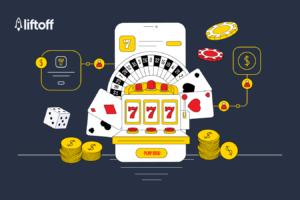Gambling Commission survey suggests World Cup could be gateway betting event

The gambling regulator commissioned comparative surveys conducted in December and March.
UK.- The Gambling Commission has reported on the results of a survey it commissioned into betting behaviours both during and after the FIFA World Cup. The regulator commissioned Yonder to gather data during the men’s World Cup in December and again in March to find out if the event led to an increase in gambling.
The research group contacted people who reported either having bet on the World Cup or having played a related free-to-play game during the tournament. Its 811 respondents answered questions about their gambling behaviours and attitudes. The same people were contacted in March to discover if they had changed their gambling behaviour.
The Gambling Commission particularly wanted to know whether the World Cup was a gateway event that introduces people to betting or causes infrequent bettors to increase their betting activity. Out of the 811 respondents, 101 said they had not bet on football in the 12 months prior to the World Cup. In the 11 to 12 weeks after the World Cup, 34 of these people reported having placed a bet on sport while 72 participated in some form of non-National Lottery gambling.
It said: “This suggests that for approximately a third of people who were new or returning gamblers, betting on the World Cup did lead to continued (re)engagement with betting, and that there was also an observed increase in gambling engagement across a range of products.”
It concluded: “We’ve always known that the way that people experience gambling changes over time, but this approach allowed us to look at how much movement there was between the different bands.
“Due to this being the first time we have had this type of data, and the considerable overlap between the 12-month periods reflected upon in each survey, we are treating the findings from this research with a little bit of caution – but we will be exploring this and other longitudinal data further to continue to build a picture of how people move in and out of problematic gambling, even over short periods of time.”
Yonder looked into why people bet on football during and after the World Cup. It found that the majority did so to “add excitement to a game”. The influence of another significant factor, the chance to gamble with friends, declined after the World Cup. The Gambling Commission said the data reinforces the idea that betting on the World Cup was more related to social influences than normal football betting.
The regulator said: “People who had bet on the World Cup were more likely to do so because they were in the ‘Feeling Lucky’ and ‘Social Play’ categories, and less likely to be in the ‘For the Money’ category.”
Bookmakers report rise in bets on FIFA Women’s World Cup
Bookmakers have reported seeing a substantial rise in worldwide betting on the Women’s World Cup, including among female bettors. In the UK, Entain, which owns the Ladbrokes and Coral brands, says it’s seen “exponential growth” in betting on the competition and a record number of women placing bets.
Over in the host nations, TAB New Zealand, an official sponsor and partner of Entain, has reported a 365 per cent rise in the number of bets placed on this year’s tournament, while the increase in Australia was nearly 200 per cent, likely as a result of the Matildas’ progress.











